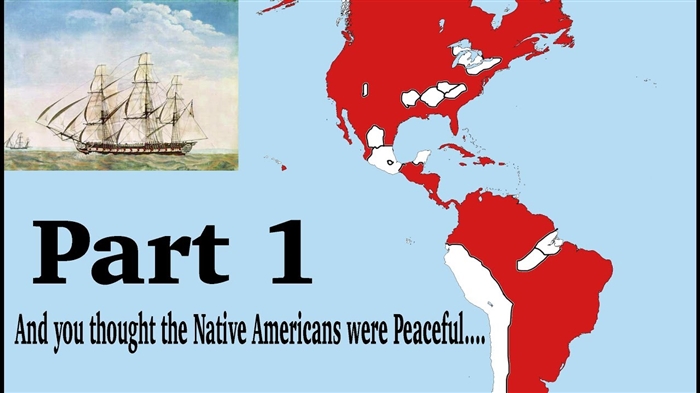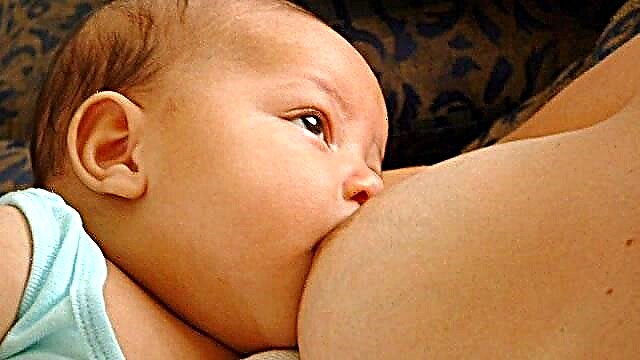Quotes by Janusz Korczak - this is a storehouse of amazing observations of the great teacher of children and their lives. A must-read for parents of all ages.
Janusz Korczak is an outstanding Polish teacher, writer, physician and public figure. He went down in history not only as a great teacher, but also as a person who in practice proved his boundless love for children. It happened during the Second World War, when he voluntarily went to a concentration camp, where the inmates of his "Orphanage" were sent for destruction.
This seems all the more incredible since Korczak was personally offered freedom many times, but he flatly refused to leave the children.

In this post, we have collected selected quotes from the great teacher, which may help you to reconsider your attitude towards children.
***
One of the gross mistakes is to think that pedagogy is a science about a child and not about a person. The hot-tempered child, not remembering himself, hit; an adult, not remembering himself, killed. A toy was lured away from an innocent child; an adult has a signature on the bill. A frivolous child for the ten, given to him for a notebook, bought sweets; the adult lost all his fortune at cards. There are no children - there are people, but with a different scale of concepts, a different store of experience, different drives, a different play of feelings.
***
Out of fear that death might take the child away from us, we take the child away from life; not wanting him to die, we do not let him live.
***
What should he be? A fighter or a hard worker, a leader or a private? Or maybe just be happy?
***
In the theory of upbringing, we often forget that we must teach the child not only to appreciate the truth, but also to recognize lies, not only to love, but also to hate, not only to respect, but also to despise, not only to agree, but also to object, not only to obey. but also to rebel.
***
We do not give you God, because each of you must find Him in your soul, we do not give you the Motherland, because you must find it with the labor of your heart and mind. We do not give love to a person, for there is no love without forgiveness, and forgiveness is hard work, and everyone must take it upon themselves. We give you one thing - we give you the aspiration for a better life, which does not exist, but which one day will be, to a life of truth and justice. And maybe this aspiration will lead you to God, Motherland and love.
***
You are quick-tempered, - I say to the boy, - well, okay, fight, just not very hard, get angry, only once a day. If you will, this one phrase contains the entire educational method that I use.
***
You speak: "Children tire us"... You're right. You explain: “We must go down to their concepts. Go down, bend over, bend over, shrink "... You are wrong! This is not what we get tired of. And from the fact that you need to rise to their feelings. Get up, stand on tiptoe, stretch.
***
It does not concern me, small or big, and what others say about him: handsome, ugly, smart, stupid; it doesn't even concern me whether he is a good student, worse than me or better; is it a girl or a boy. For me, a person is good if he treats people well, if he does not wish and does not do evil, if he is kind.
***
Respect, if not read, a pure, clear, immaculate holy childhood!
***
If a person could count all the humiliation, injustice and resentment that he had to experience in his life, it would turn out that the lion's share of them falls precisely on the "happy" childhood.
***
Modern parenting requires a child to be comfortable. Step by step, it leads to neutralizing it, crushing it, destroying everything that is the will and freedom of the child, the tempering of his spirit, the strength of his demands and aspirations.
***
Everything that is achieved by training, pressure, violence is fragile, wrong and unreliable.
***
Children love when they are slightly forced: it is easier to deal with internal resistance, effort is saved - no need to choose. Making a decision is exhausting work. The requirement obliges only externally, free choice internally.
***
Do not reproach favors. It hurts the most. Adults think that we easily forget, we don't know how to be grateful. No, we remember well. And every tactlessness, and every good deed. And we forgive a lot if we see kindness and sincerity.
***
It is inconvenient to be small. All the time you have to lift your head ... Everything is happening somewhere above, above you. And you feel yourself somehow lost, weak, insignificant. Maybe that's why we like to stand beside adults when they sit - this is how we see their eyes.
***
If the mother blackmails the child with imaginary dangers in order to achieve obedience, so that he is calm, quiet, obediently ate and slept, he will later take revenge, frighten, and blackmail her. Will not want to eat, will not want to sleep, will bother, make noise. Make a little hell
***
And this quote from Korczak deserves special attention:
The beggar disposes of alms as he pleases, and the child does not have anything of his own, he must be accountable for every object received for personal use. Cannot be torn, broken, stained, donated, denied with disdain. The child must accept and be satisfied. Everything at the appointed time and in the appointed place, prudently and according to the purpose. Maybe that's why he so appreciates worthless trifles that cause us surprise and pity: various rubbish is the only truly property and wealth - lace, boxes, beads.
***
We must be careful not to confuse “good” with “convenient”. He cries a little, does not wake up at night, trusting, obedient - good. Capricious, shouts for no apparent reason, the mother does not see the light because of him - bad.
***
If we divide humanity into adults and children, and life into childhood and adulthood, it turns out that children and childhood are a very large part of humanity and life. Only when we are busy with our concerns, our struggle, we do not notice it, just as we did not notice the woman, the peasant, the enslaved tribes and peoples before. We settled down so that children would interfere with us as little as possible, so that they would understand as little as possible what we really are and what we are actually doing.
***
For the sake of tomorrow, we neglect that which pleases, embarrasses, surprises, angry, occupies the child today. For the sake of tomorrow, which he does not understand, which he does not need, years of life are stealing, many years. You will still have time. Wait until you grow up. And the child thinks: “I am nothing. Only adults are something. " He waits and lazily interrupts from day to day, waits and suffocates, waits and lurks, waits and swallows saliva. A wonderful childhood? No, it's boring, and if there are wonderful moments in it, they are won back, and more often than not, stolen.
***
Smiling at a child - you expect a smile in return. Telling something interesting - you expect attention. If you are angry, the child should be upset. This means that you get a normal response to irritation. And it also happens in another way: the child reacts paradoxically. You have the right to be surprised, you have to think, but don't be angry, don't sulk.
***
In the realm of feelings, he surpasses us, because he does not know the brakes. In the field of intelligence, at least equal to us. He has everything. He just lacks experience. Therefore, an adult is so often a child, and a child is an adult. The only difference is that he does not earn his living, that, being in our support, he is forced to obey our demands.
***
In my pedagogical arsenal, in my, let's say, the teacher's first-aid kit, there are a variety of means: slight grunt and mild reproach, barking and snorting, even a powerful headwash.
***
Also an amazing deep quote from Janusz Korczak:
We hide our shortcomings and actions that deserve punishment. Children are not allowed to criticize and notice our funny features, bad habits, funny sides. We build ourselves to be perfect. Under the threat of the highest offense, we guard the secrets of the ruling class, the caste of the chosen - those who are involved in the highest sacraments. Only a child can be exposed shamelessly and put to the pillory. We play with the children with marked cards; We beat the weaknesses of childhood with the aces of adults Cheaters, we juggle cards in such a way as to oppose the worst in children with what is good and valuable in us.
***
When should a child walk and talk? - When he walks and talks. When should teeth be cut? - Just when they cut. And the crown should be overgrown only when it is overgrown.
***
It's a crime to force children to sleep when they don't feel like it. A table showing how many hours of sleep a child needs is absurd.
***
The child is a foreigner, he does not understand the language, does not know the direction of the streets, does not know the laws and customs.
***
He is polite, obedient, good, comfortable - but there is no thought of being internally weak-willed and vitally weak.
***
I did not know that the child remembers so well, waits so patiently.
***
A door will pinch a finger, a window will stick out and fall out, a bone will choke, a chair will knock over on itself, a knife will cut itself, a stick will gouge an eye out, a box lifted from the ground will become infected, matches will burn. “You will break your arm, the car will run over, the dog will bite. Don't eat plums, don't drink water, don't go barefoot, don't run in the sun, button your coat, tie a scarf. You see, he didn’t obey me ... Look: lame, but blind over there. Fathers, blood! Who gave you the scissors? " A bruise does not turn into a bruise, but a fear of meningitis, vomiting - not dyspepsia, but a sign of scarlet fever. Traps are set everywhere, all ominous and hostile. If the child believes, does not slowly eat a pound of unripe plums and, deceiving parental vigilance, does not light a match somewhere in a secluded corner with a beating heart, if he is obedient, passive, trustingly gives in to the demands to avoid all sorts of experiments, to give up any attempts , efforts, from any manifestation of will, what will he do when in himself, in the depths of his spiritual essence, he feels how something hurts him, burns, stings?
***
Only boundless ignorance and the surface of one's gaze can allow one to overlook that a baby is a certain strictly defined individuality, consisting of an innate temperament, intellectual power, well-being and life experience.
***
We must be able to sympathize with the good, the evil, people, animals, even a broken tree and pebble.
***
The child does not speak yet. When will he speak? Indeed, speech is an indicator of a child's development, but not the only one and not the most important one. Waiting impatiently for the first phrase is proof of the immaturity of parents as educators.
***
Adults do not want to understand that a child responds to affection with affection, and anger in him immediately gives rise to a rebuff.
***









